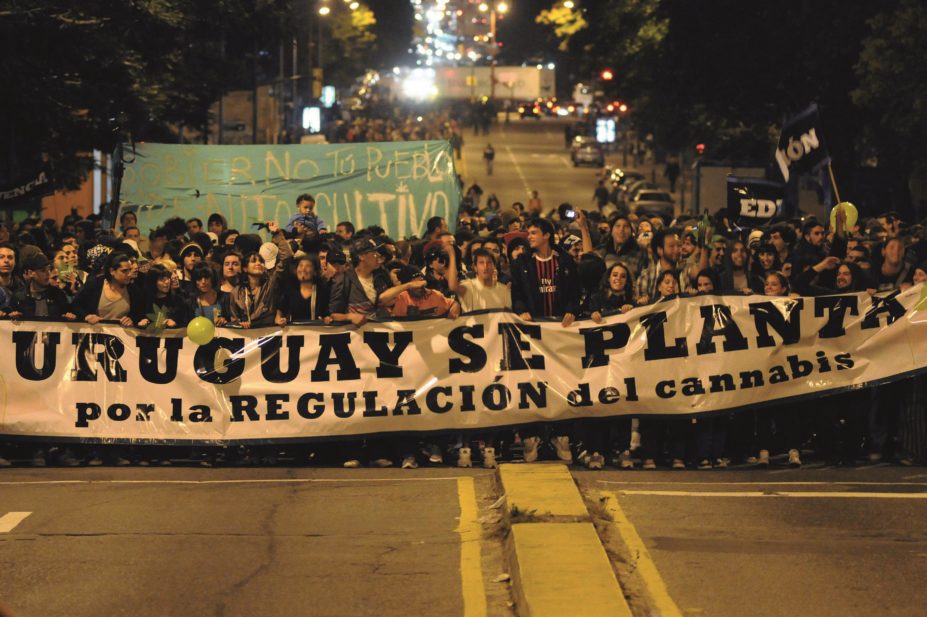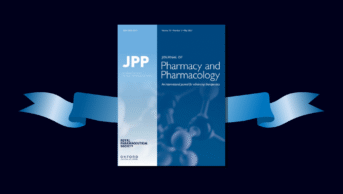
EPA European Pressphoto Agency B.V. / Alamy
Marijuana will not be sold in pharmacies in Uruguay until March 2015, the National Drugs Board (JND) announced on 26 November 2014.
The move is part of wider plans to control the cannabis market in Uruguay. A law was passed in December 2013 to allow the regulated cultivation, supply and use of cannabis for recreational purposes. As part of the plan, pharmacies were due to sell cannabis in November 2014.
The delay is due to technical issues, says the JND. The national cannabis production institute, established under the JND to manage the implementation of Law 19.172, has tendered the cannabis farming part of the programme, and the JND is currently ensuring that its regulations and controls are in place and will be met by the contractors involved, a spokesperson explains.
“Several companies are being chosen from around 40 bidders, and the programme will then have to respect the biological timeline involved in cultivating cannabis,” he adds. The JND said it was confident the programme would be up and running by March 2015.
While the world’s public health and pharmaceutical industry observers wait for Uruguay to implement the radical plans, neighbouring South American countries have begun to debate the merits of coordinating similar measures across the region.
Ricardo Canese, Paraguay’s representative on the Mercosur parliament, has formally called on the regional trade bloc to consider whether a coordinated multinational strategy based on Uruguay’s measures might offer a solution to the scourge of drug-trafficking across South and Central America.
Mercosur’s full members are Argentina, Brazil, Paraguay, Uruguay and Venezuela. Chile, Bolivia, Colombia, Ecuador and Peru are associate members; and Mexico and New Zealand have observer status.
Speaking of the proposal, which he presented to the parliament on 10 November 2014, Canese said the US-led ‘war on drugs’, based on the repression of drug supply and use, has failed to stem the problem, and “it is imperative that we widen the debate around the legalisation of cannabis and other drugs, first within Mercosur and then within each member state”.
“Such a debate needs to cover the whole range of possible solutions,” he believes, from the ‘war on drugs’ extreme of the problem, represented by Mexico, through to unregulated decriminalisation, as exemplified by the Netherlands.
In this context, “Uruguay’s strategy is an interesting and important one — but if a single country acts on its own, its impact will be very limited,” Canese said in a statement.
His initiative appears to have received support from other countries in the region and beyond. Ricardo Lagos, the former president of Chile, is widely reported to have voiced his support for a Uruguay-styled regulated regime covering cannabis, and indeed that “we should try and do the same with cocaine within another one or two years”.
Critics of Uruguay’s plans, notably the planned reliance on pharmacies to effectively police the over-the-counter supply of cannabis — as rejected by the country’s chemistry and pharmacy association (AQFU), backed by the International Pharmaceutical Federation (FIP) — are being urged to consider the wider social and economic benefits of removing power from drug-trafficking gangs to stem the related violence and wider social instability, and the impact on national and regional development.
The drugs liberalisation debate is not new to the region: these developments are the culmination of years of attempts to legislate ways of addressing the problem. But local reports suggest that a number of countries, including Colombia, Guatemala and Costa Rica, are becoming increasingly vocal in their rejection of the current strategy — seen as having supported the drug-traffickers — and are increasingly ready to embrace the decriminalisation route.
Paraguay, as the region’s largest producer of cannabis, has echoed the national anti-drugs agency Senad’s warnings that it can only account for around 10% of the country’s US$8bn annual trade in the drug. Media reports citing Senad chief Luis Rojas suggest that the country is “losing control to Brazilian drug gangs” that traffic around 80% of the cannabis produced by “thousands of farmers whose arrest and prosecution is simply not feasible”.


